Learning, lifestyle and culture
Myself, my family, relationships and choices - CCEA
Learn key vocabulary for talking about your friends and family. Practise your language skills to describe and respond to questions about those close to you.

Technology in everyday life - CCEA
Learn key phrases and vocabulary to discuss different types of technology, their uses, advantages and disadvantages, and the impact of social media.

Music, cinema and TV - CCEA
Learn key phrases and vocabulary about different forms of entertainment. Practise your language skills to help you understand and give opinions about TV, film and music.

Sport - CCEA
Sport is a key free time activity for many people, whether theyāre playing or watching. Learn key phrases and vocabulary to help you discuss sports and exercise.
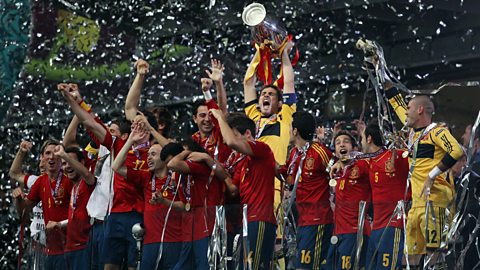
Food and eating out - CCEA
Food plays an important part in Spanish culture. Revise vocabulary to talk about foods, discuss restaurants and cooking, and order meals.

Hobbies - CCEA
Spain offers a wide variety of outdoor activities and experiences. Being able to talk about things to do in Spanish will help you make friends and improve your language skills.

Shopping and fashion - CCEA
Shopping, fashion and current trends play an important part in everyday life for many. Practise using language to discuss shopping and fashion, speak with shop assistants and understand advertising.
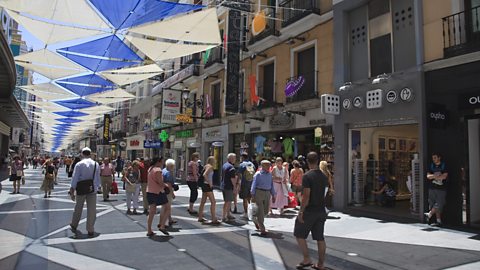
Free time, leisure and daily routine - CCEA
Our daily routines can make a huge difference to how healthy, happy and productive we are. Being able to talk about your daily routine will help you communicate with people and improve your language skills.

Culture, customs, festivals and celebrations - CCEA
Spain is well known for its fiestas and festivals. Being able to talk about culture and customs will help you communicate with locals and improve your language skills.

Local, national and international lifestyles and issues
My home - CCEA
Practise your listening and reading skills and revise key phrases and vocabulary used to discuss different types of home and home life.

My local area and the wider environment - CCEA
Practise your language skills and learn how to give directions, describe the weather and talk about different places in towns or neighbourhoods.

Social and global issues - CCEA
Poverty, homelessness, unemployment, crime and discrimination are examples of social and global issues. Develop your understanding of these issues and practise translation, reading and listening skills.
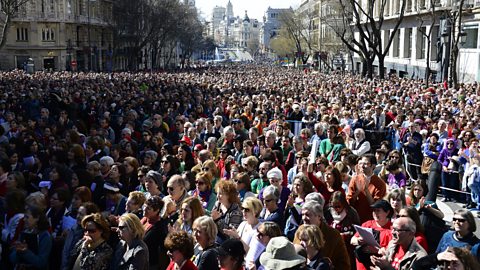
Healthy and unhealthy living - CCEA
Healthy and unhealthy living covers broad health issues. Practise listening, writing and reading skills to talk about health and lifestyle.

The environment - CCEA
It is important to be able to understand written and spoken passages about the environment and to be able to discuss environmental problems and what you and others do to help, for example by recycling or volunteering.
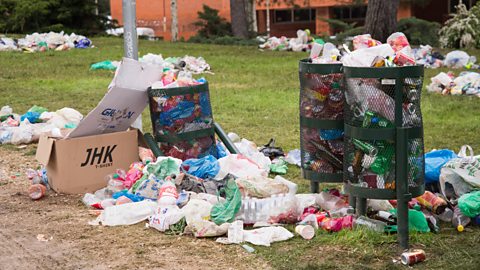
Holidays and tourism - CCEA
Holidays and tourism is a broad topic. It is important to know the basic vocabulary, to understand written and spoken information and to be able to talk and write about your own holiday experiences.

Travel - CCEA
Learn key phrases and vocabulary about travel to understand texts on the topic and use spoken language in everyday practical situations.
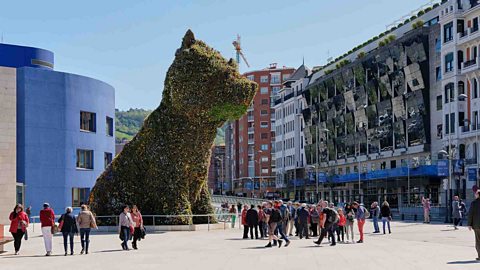
School life, studies and employment
My studies - CCEA
It is important to be able to understand spoken and written texts on the topic of school and college and to be able to talk about your own experiences of studying.

Life at school - CCEA
Learn key vocabulary on life at school. Practise writing and listening skills to help deal with topics such as school uniform, school rules, problems at school and extra-curricular activities.
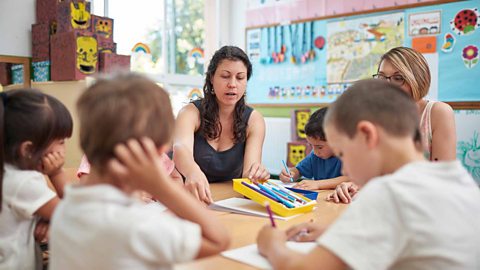
Jobs and work experience - CCEA
It is important to be able to understand written and spoken passages about jobs and to be able to describe work and work experience.

Education post-16 - CCEA
It is important to be able to discuss what your plans are for future study and to understand reading and listening texts on the topic of education post-16.

Career choices and ambitions - CCEA
Learn to discuss future plans and understand texts on the topic of career choices and ambitions. Practise the sort of language you would need at a job interview.
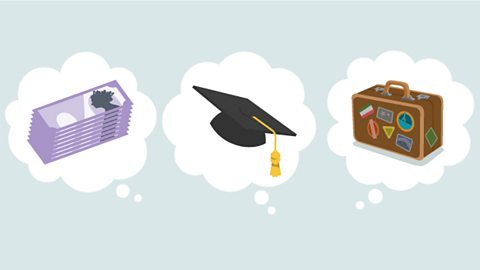
Grammar
Revising Spanish grammar - nouns and articles - CCEA
A noun is a naming word used for a person, thing, place or idea. In Spanish, all nouns are either masculine or feminine. The word for ātheā or āaā changes depending on the gender of the noun and whether it is singular or plural.
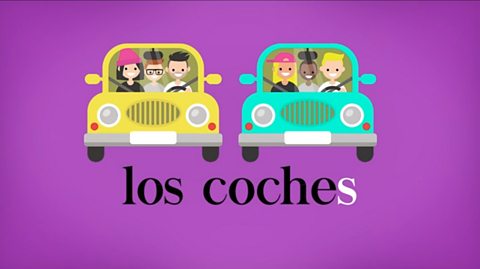
Revising Spanish grammar - adjectives - CCEA
An adjective is a word that describes a noun. In Spanish, adjectives have different endings depending on whether the word they are describing is masculine, feminine, singular or plural.

Revising adverbs in Spanish - CCEA
Adverbs are words that add meaning to the verb and describe actions. They tell us when or how something is happening or where the action in a sentence takes place.
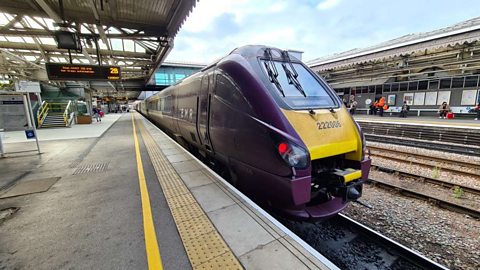
Revising Spanish grammar - pronouns - CCEA
Pronouns are used to replace nouns. Pronouns are usually shorter and quicker ways of referring to a noun to help make sentences less repetitive.

Revising the present tense in Spanish - CCEA
Use the present tense to describe what you do and what things are like. The present continuous can be used to talk about what is happening now.

Revising Spanish grammar - preterite tense - CCEA
Use the preterite tense to talk about completed actions at specific times in the past. The preterite is used when the past action has a definite beginning and definite end.
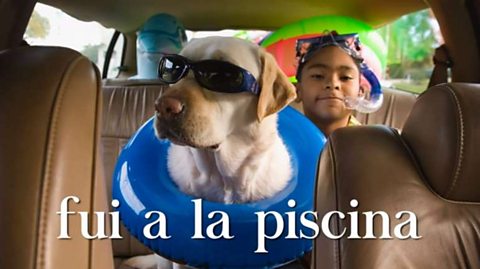
Revising Spanish grammar - imperfect tense - CCEA
Use the imperfect tense to talk about repeated or continuous actions in the past. The imperfect is used when the past action doesnāt have a definite beginning and definite end.

Revising Spanish grammar - perfect tense - CCEA
The perfect tense is used to express or describe actions that have happened in the recent past. It has two parts that always need to be used together.
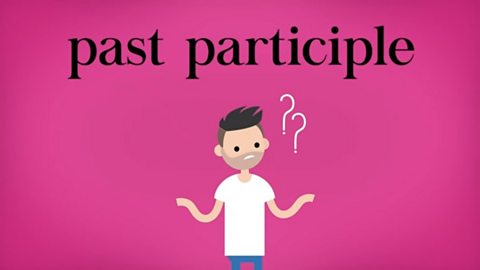
Revising Spanish grammar - future tense - CCEA
Use the immediate future tense to talk about what is going to happen. The future tense is used to express what will take place.
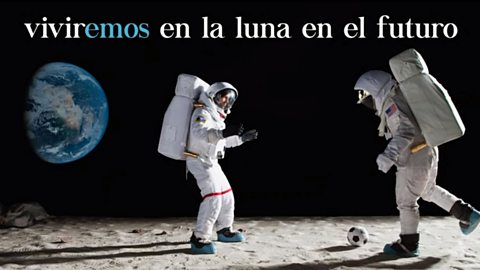
Revising Spanish grammar - conditional tense - CCEA
Use the conditional tense to talk about intentions and ambitions that may happen in the future. The conditional is used for polite requests and to express phrases using 'would', 'could' and 'should'.
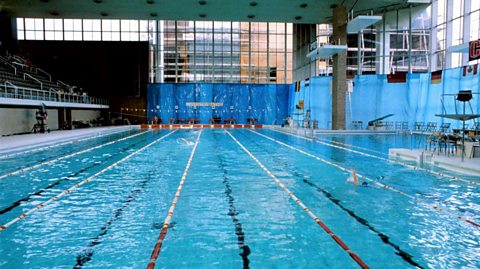
Revising Spanish grammar - other tenses and verb forms - CCEA
Add variety to your written and spoken Spanish by using other tenses and verb forms. Develop your language skills and improve comprehension by recognising and practising a range of structures.

Revising Spanish grammar - negatives - CCEA
Negative words can be used in different ways in Spanish. Construct negative sentences by using 'no' and other negative words and phrases.
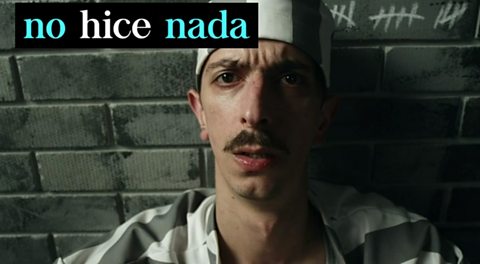
Links
- External linkExternal link
- External linkExternal link
- SubscriptionSubscription
- External linkExternal link
- External linkExternal link